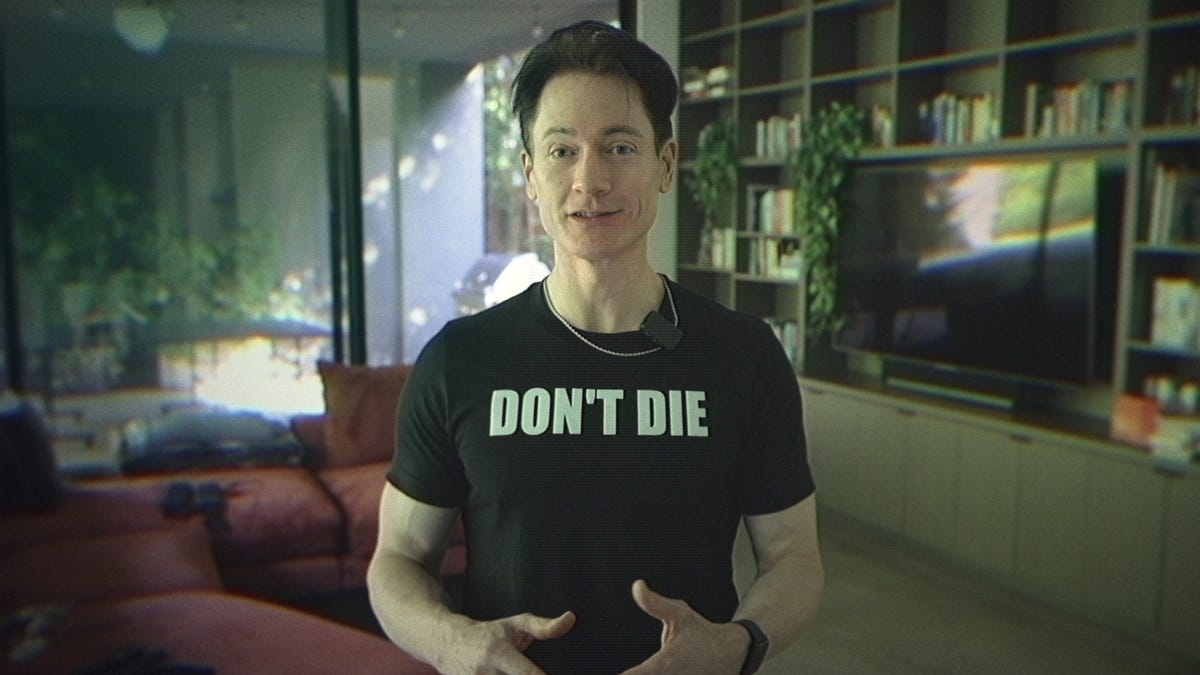How much does it cost to live longer?
Canyon Ranch, a luxury wellness resort, offers extensive screenings and tests aimed at helping customers live longer and healthier lives.
Bryan Johnson has yet to quench his thirst for longevity. He’s taking all the supplements and trying all the therapies and medical interventions you can imagine to the tune of $2 million per year. You might also recognize him as the man who’s used his son Talmage as a “blood boy,” injecting himself with his son’s plasma.
In his Netflix documentary, “Don’t Die,” earlier this year, he claims to have shrunk his “biological age” by 5.1 years. A New York Times story, however, reported that his age at one point actually increased 10 years according to internal studies. Yes, these measures fluctuate, as Johnson told the Times, but it throws a large bucket of cold water on Johnson’s sweeping claims.
Longevity experts are mostly over Johnson’s shtick and hope people consider the basics when it comes to taking care of themselves. “Biological age,” they add, isn’t currently as useful a measure as many companies might persuade you into thinking.
“Bryan (Johnson) can do all he wants to lower his biological age through whatever means he’s choosing,” says S. Jay Olshansky, professor of epidemiology and biostatistics at the University of Illinois Chicago, “but unless it’s translated into science that tells us that a modification of the biomarker actually makes people live longer and/or healthier, then it’s pretty much a useless statistic.”
Is there a ‘fountain of youth’?
What’s the secret to living longer? Get back to the basics.
The things that we know that work today include sticking to an exercise routine, keeping your weight at a healthy level, getting regular and good sleep and avoiding cigarettes and other toxins, according to Dr. Douglas E. Vaughan, professor of medicine at Northwestern University Feinberg School of Medicine and the director of the Potocsnak Longevity Institute. You should also try and reduce stress in your life and maintain healthy relationships with loved ones.
Dr. Thomas Perls, professor of medicine at Boston University and longevity expert, also suggests curbing alcohol use. On diet specifically, Marion Nestle, the Paulette Goddard Professor of nutrition, food studies and public health, emerita, at New York University, says to eat a variety of minimally-processed “real foods” and balance calories.
In Olshansky’s mind, “exercise is about the only equivalent of a fountain of youth that exists today.”
But he’s curious about Johnson’s efforts to push the envelope of how much you can manipulate the functioning of specific organs. “The question is,” he says, “can you do it without all these supplements and all the stuff that he’s taking and using?”
What is biological age?
Biological age isn’t some mysterious figure. “You go to your high school reunion, you’ll see some people on one side of the room that appear to be biologically much younger than others,” Olshansky says. Quantifying it, however, has sprouted up more and more in the zeitgeist.
No official “biological age” test exists; companies and institutions measure it by looking through different determinants, including levels of proteins in the blood and DNA methylation testing, or how much your genes are expressed based off your habits. Researchers can analyze common diagnostic tools like an electrocardiogram and look at biological age that way, too.
Keep in mind these numbers aren’t actually telling you how long you’re going to live; they’re a snapshot in time and an update for you on the health of certain organs.
“All these different clocks will give you different numbers, and which ones are actually the truth? I don’t know,” Doug says.
Olshansky agrees with that point, and asserts what Johnson’s biomarkers say is irrelevant: “What you need in order for any of that information to be useful is evidence to indicate that if you have a biomarker indicating that your biological age is younger than your chronological age, that it will actually make you live longer. That’s what’s missing from the equation.”
Scientists have yet to agree on which biomarkers actually indicate longevity, and what medical interventions might be able to help bring down someone’s biological age. “We haven’t been using these approaches long enough to have any longitudinal studies to actually measure how long people live when they’re engaging in these kind of regimens,” says Laura L. Carstensen, professor of psychology at Stanford University and director of the Stanford Center on Longevity.
Vaughan thinks Johnson’s approach, however, is “misguided, misinformed and a mistake, and I do not encourage people to emulate it.”
More answers needed about longevity, biological age
Still, Vaughan anticipates everyone will get biological age testing done and use it to inform their lifestyle choices.
But it’s likely that “what may make me healthier is not necessarily the same formula as what would make you healthier,” Carstensen adds. For now, it’s best to not take any “biological age” metric you receive as gospel.
Scientists will keep looking to prove methods for lowering biological age, like weight loss drugs GLP-1s, cold immersion therapy and hyperbaric oxygen therapy.
“All these things are hypothetically helpful, but we need to do the studies,” Vaughan adds. “We need science to guide us on where to go. We don’t need to just start grabbing everything off the shelf.”
To that end, perhaps Johnson is missing out on the best part of life in his quest to not die: Living. “I often want to put my arm around Bryan Johnson’s shoulder,” Carstensen says, “and say, ‘bless your heart. Honey, go have a hamburger. I mean, go do something.’”

Leave a Reply